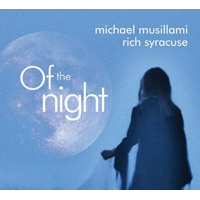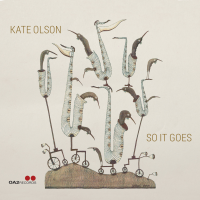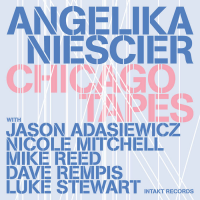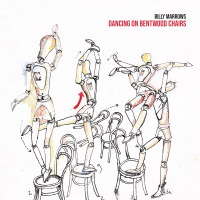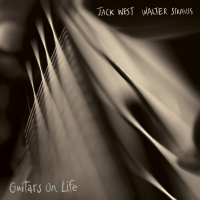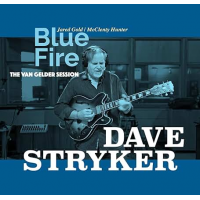Home » Jazz Articles » Extended Analysis » Ian Hunter: Ian Hunter: Fingers Crossed
Ian Hunter: Ian Hunter: Fingers Crossed
It's noteworthy that, in providing detailed musician credits as prominently as his lyrics in the booklet of within the bright-hues of this CD package, the frontman also gives overall co-credit to his group The Rant Band. Ian Hunter has always been keenly aware of the sound of his songs as they appear in finished recordings, not to mention the pedigree of his accompanists: see the roster of guests who appear on All American Alien Boy (Columbia, 1976) including Jaco Pastorius as well as member of Bruce Springsteen's E-Street Band. Little wonder then that this album begins with the group en masse, with heavy chording and drumming combined with the yelling cum chant on "That's When the Trouble Starts."
But the five-piece Rant Band is also quite discernibly all in on the more song-oriented "Dandy," evoking more than superficial shades of The Hoople but appropriately so as it's homage to the late David Bowie, an early champion of Mott and producer of the album that contained their first hit, "All the Young Dudes." The admiration for that recently deceased rock icon allows the author to assume one of his favorite roles-that of a devout music fan-and provides a subliminal seque to "Ghosts:" relating as well as reliving an experience in the hallowed Sun Records studios, Ian Hunter and his quintet display no little finesse in layering the sound of acoustic and electric guitars.
The echoed tones of one of the latter instruments on the solo of the title song makes for a resonant contrast with the acoustic piano foundation rendered all the more stately via the vulnerability in the leader's singing. "White House" is a change-up in more ways than one: it's Chuck Berry-derived jocularity has nothing to do with politics, but rather the succor supplied by personal intimacy and pastoral surroundings.
Still, Ian Hunter continues to hone a singular voice as a songwriter, drawing upon Greek Mythology for the grand crescendo of "Morpheus," but also as a recording artist: "Stranded in Reality," "You Can't Live in the Past" and "Long Time" form a provocative sequence of songs that emphatically concludes an album documenting this man's continuing creative vigor—and a visceral connection with his audience—as moves past his seventy-fifth year.
Track Listing
That's When The Trouble Starts; Dandy; Ghosts; Fingers Crossed; White House; Bow Street Runners; Morpheus; Stranded In Reality; You Can't Live In the Past; Long Time.
Personnel
Ian Hunter: vocals, harmonica, Acoustic guitar, piano, backing vocals; James Mastro: 6-string fuzz-bass, mandolin, electric Slide, electric 12-string, acoustic 12-string; Mark Bosch: guitars; Andy Burton: Wurlitzer piano, harmonium, Hammond B3; Vox organ, marxophone; Paul Page: bass; Steve Holley: drums, percussion; Andy York: acoustic guitar, twelve-string electric guitar, backing vocals, bongos, drums; James Frazee: intergalactic tambourine/
Album information
Title: Ian Hunter: Fingers Crossed | Year Released: 2016 | Record Label: Proper Records
Tags
PREVIOUS / NEXT
Support All About Jazz
 All About Jazz has been a pillar of jazz since 1995, championing it as an art form and, more importantly, supporting the musicians who make it. Our enduring commitment has made "AAJ" one of the most culturally important websites of its kind, read by hundreds of thousands of fans, musicians and industry figures every month.
All About Jazz has been a pillar of jazz since 1995, championing it as an art form and, more importantly, supporting the musicians who make it. Our enduring commitment has made "AAJ" one of the most culturally important websites of its kind, read by hundreds of thousands of fans, musicians and industry figures every month.




